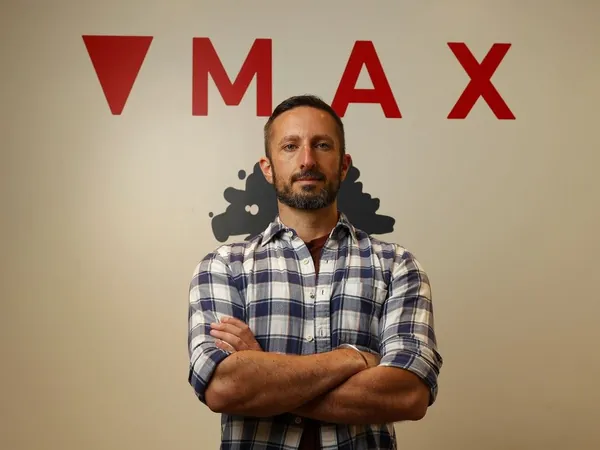
Revolutionizing Healthcare: How OpenEvidence Is Transforming Doctors' Access to Knowledge
2025-07-28
Author: Amelia
OpenEvidence Secures Massive Investment: A Game-Changer for Healthcare
In an impressive leap forward, OpenEvidence has raised a staggering $210 million in its latest funding round, attracting heavyweights like Google Ventures and Kleiner Perkins. This influx of capital skyrockets the company's valuation to an eye-watering $3.5 billion.
The Vision: Accessible Medical Knowledge for All
OpenEvidence is on a mission that's both audacious and vital: to compile the entirety of medical knowledge and research developments into a digestible format, ensuring that physicians have instant access to the latest information. Imagine the convenience of interacting with a medical encyclopedia via a chatbot, akin to popular AI services like ChatGPT, but specifically tailored for doctors.
Staying Ahead in a Rapidly Evolving Field
Medical science is an ever-changing domain, where knowledge doubles every 73 days and a new peer-reviewed article appears every three minutes. OpenEvidence, trained on about 35 million publications, aims to enhance the quest for information, turning overwhelming data into actionable insights. According to the company, over 40% of U.S. physicians are already harnessing this technology across 10,000 hospitals.
Recognizing the Value of AI in Healthcare
The significance of this technology cannot be understated. Recent advancements from OpenAI’s latest models, such as GPT-4.1, have demonstrated remarkable capabilities in medical applications, reportedly outperforming traditional physician evaluations. Likewise, Google's MedLM suite is making waves by enhancing healthcare workflows, from answering medical inquiries to interpreting unstructured data.
Why This Revolution Matters
This transformation is crucial as healthcare professionals face mounting challenges, including burnout and overwhelming administrative duties. With less time for professional development, innovative tools like OpenEvidence streamline access to current research, enabling physicians to stay informed without sacrificing their patient care responsibilities.
The Future of Physician Workflows
Tools such as OpenEvidence DeepConsult already empower doctors with AI-driven research capabilities. Additionally, Gemini’s advanced models can analyze medical images, and AI scribing technology efficiently generates patient notes. This means hours saved daily for physicians, translating into cost savings for healthcare systems and ultimately better patient care.
The Bottom Line: A New Era in Healthcare is Here
OpenEvidence isn’t just about data—it’s about enhancing the physician experience, improving access to quality care, and ensuring healthcare systems thrive in a challenging environment. This innovation could redefine how medical professionals operate, paving the way for a more efficient and effective healthcare landscape.









 Brasil (PT)
Brasil (PT)
 Canada (EN)
Canada (EN)
 Chile (ES)
Chile (ES)
 Česko (CS)
Česko (CS)
 대한민국 (KO)
대한민국 (KO)
 España (ES)
España (ES)
 France (FR)
France (FR)
 Hong Kong (EN)
Hong Kong (EN)
 Italia (IT)
Italia (IT)
 日本 (JA)
日本 (JA)
 Magyarország (HU)
Magyarország (HU)
 Norge (NO)
Norge (NO)
 Polska (PL)
Polska (PL)
 Schweiz (DE)
Schweiz (DE)
 Singapore (EN)
Singapore (EN)
 Sverige (SV)
Sverige (SV)
 Suomi (FI)
Suomi (FI)
 Türkiye (TR)
Türkiye (TR)
 الإمارات العربية المتحدة (AR)
الإمارات العربية المتحدة (AR)